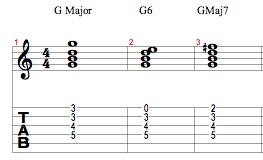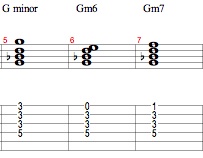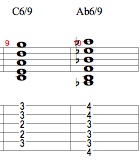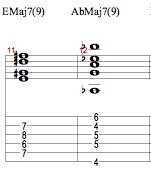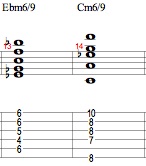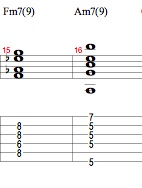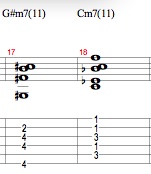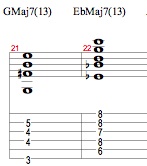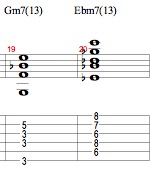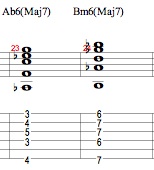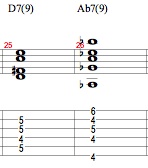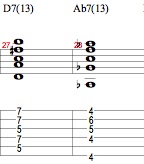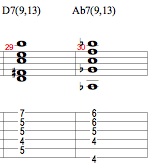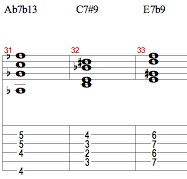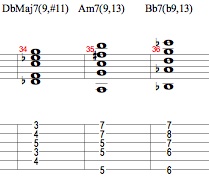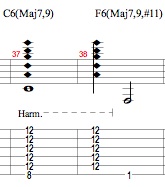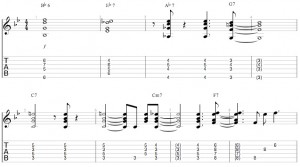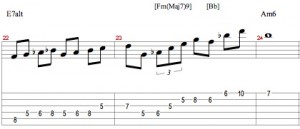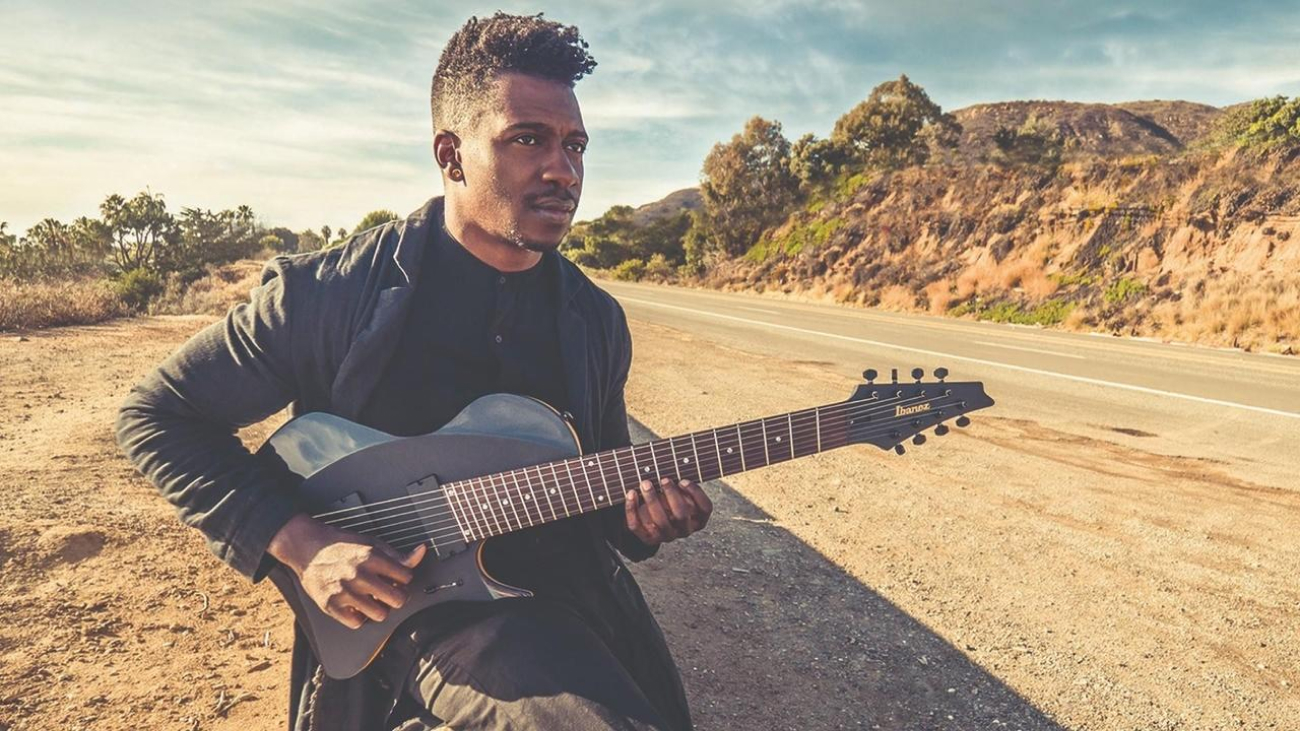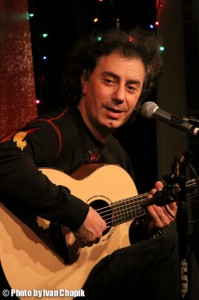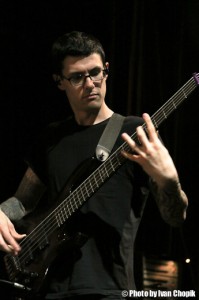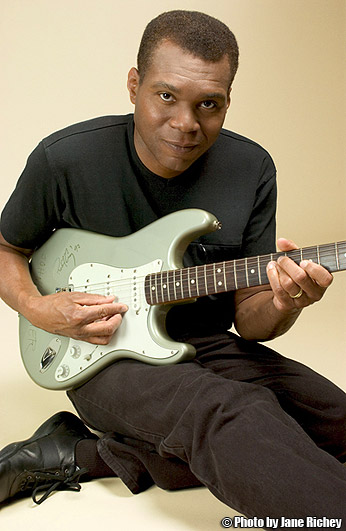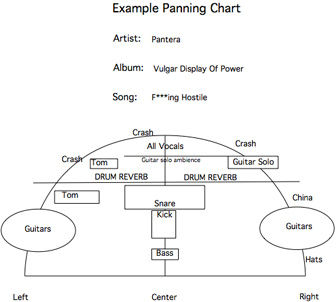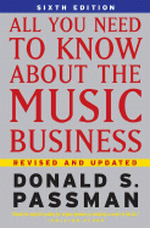What’s so great about Jazz?
What about that sound is so appealing? Why should we as guitarists take the time to study Jazz, even if we do not intend to play jazz gigs? Well, there are many answers, but one that really stands out, especially for us guitarists, is the rich harmonic sound of a Jazz chord voicing. The chords that a Jazz player uses are denser and richer than those of most rock, pop, funk, and countless other styles of music, and so we will dive right into the warm, thick, colorful waters of tensions.
From the beginning, Jazz musicians started upping the ante with basic chord sounds. Instead of just playing simple triads, composed of the 1, 3, and 5 of the respective scale, they added 6ths and 7ths. In example 1 you hear a triad played, then the corresponding 6th or 7th chord played right after it.
Example 1a:
1) Major Triad vs. Major 6th and 7th
Example 1b:
2) Minor Triad vs. Minor 6th and 7th 2
Next, they started adding even more tensions. Since the tensions are put above the basic 4 note chord, they are labeled an octave above their scalar number. 2nd = 9th, 4th = 11th, 6th = 13th, and 7 is still called 7th (which I will explain soon). We will start with 9ths, an octave above 2nds. 9ths work on major 6th, major 7th, and minor 6th chords. They will work on many minor 7th chords, but not all. Specifically a iiim7 with a 9 on it can sound very funny.
Example 2a:
3) Major6(9) Voicings
Example 2b:
4) Major7(9) Voicings
Example 2c:
5) Minor6(9) Voicings
Example 2d:
6) Minor7(9) Voicings
An 11th, an octave above a 4th sometimes shows up on minor 7th chords. A #11 (not shown here) is used on certain Maj7th and Dominant 7th chords.
Example 3:
7) Minor7(11) Voicings
13ths are an octave above a 6th and obviously are not tensions on 6th chords because they are already in the chord. 13ths work very nicely on major 7ths, and can work on minor 7ths at times (Berklee does not condone a 13 on a minor 7th but I say screw that, it’s a very nice sound!). Likewise, a major 7th can be used as a tension on major and minor 6th chords. In this case, it is not called a 14th because it is already above all the chord tones.
Example 4a:
8) Major7(13) Voicings
Example 4b:
9) Minor7(13) Voicings
Example 4c:
10) Major6(Maj7) and Minor 6(Maj7) Voicings
The real fun with tensions comes into play with dominant chords. 9ths and 13ths can be used on a dominant that resolves to a major chord. b9, #9, and b13, referred to as altered tensions, can be used on a dominant chord that resolves to major or minor.
Example 5a:
11) Dom7(9) Voicings
Example 5b:
12) Dom7(13) Voicings
Example 5c:
13) Dom7(9,13) Voicings
Example 5d:
14) Dom Altered Tensions Voicings
Depending on the situation you can mix and match all available tensions to your liking. A DbMaj7(9,#11) makes a very rich chord good for endings, an Am7(9,13) makes a good modal voicing for A dorian, Bb7(b9,13) has a mixture of normal and altered tensions. I also show voicings for a C6(Maj7,9) and F6(Maj7,9,#11) that use 12th fret harmonics with a fretted root note.
Example 6a:
15) Mixed Tensions 1
Example 6b:
16) With Harmonics 1
These tensions are a crucial part of Jazz chord playing. Experiment as much as you can and figure out what tensions you like on what chords. You can have a lot of fun with open strings and harmonics too. When playing solo or in a guitar trio you can pretty much do whatever you want. But be careful when backing up a lead/soloist; the wrong tensions can be REALLY obnoxious. Don’t go wild with the tensions unless you know the melody you’re playing under, or know the soloist’s playing very well and you trust each other to choose the right notes. Enjoy the richness and density of tensions!



